People & Culture
[ESG] SAMSUNG SDI’s Response to Climate Crisis
2024.11.12
SAMSUNG SDI recognizes the severity of climate change and the environmental crisis and continues its ESG management activities. In October 2022, SAMSUNG SDI announced a package of environmental management strategies, including eight specific tasks under two themes - response to climate change and resource circularity - with an aim to reach net zero carbon emissions by 2050. Our environmental management strategies are being carried out thoroughly since.
100% Transition to Renewable Energy
In October 2022, SAMSUNG SDI joined RE100 declared its commitment to transition 100% of the electricity used in all its domestic and international operations to renewable energy by 2050. Since then, we have been increasing our renewable energy conversion rate on an annual basis. The conversion rate, which was at 9% in 2022, was raised to 27% in 2023.
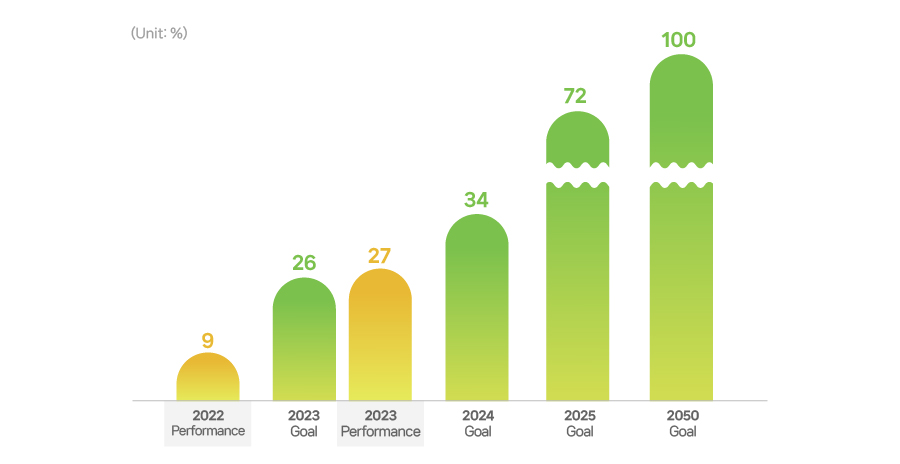
[Our progress and goals towards renewable energy conversion rate]
The primary methods for transitioning to renewable energy included purchasing renewable energy certificates, participating in green pricing programs, and installing solar panels at facilities. In August, 2023, at the Giheung headquarters, a 0.3 MW solar power facility was built, enabling the eco-friendly procurement of 300 MWh of electricity annually.
On-site Power Purchase Agreements (PPA) have been signed at the Cheonan, Ulsan, and Gumi worksites, where power generation companies are installing solar power facilities on rooftops. SAMSUNG SDI’s plan is to increase renewable energy transition rate to 34% and 72% by 2024 and 2025, respectively.
*on-site PPA: It is a type of ‘direct PPA’, a system that supplies electricity generated using renewable energy directly to electricity users without going through the electricity market. Users provide a space for on-site facility installation, and the electricity is supplied directly to users without using the public grid. (Source: KPX(Korea Power Exchange))
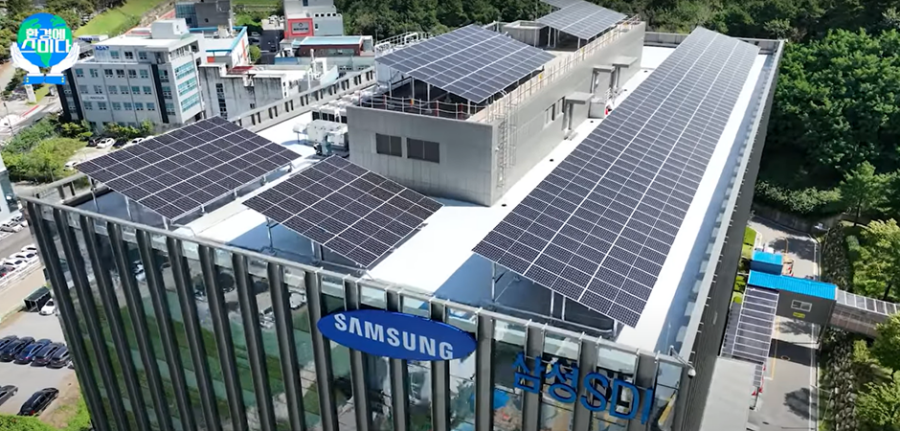
[Solar power facility at the Giheung HQ’s rooftops]
Direct GHG Emission Reduction
SAMSUNG SGI declared to reduce 340,000 tonnes of direct greenhouse gas emissions (GHG) by 2030. In 2023, we managed to reduce a total of 16,000 tonnes of direct GHG by reducing 6,000 and 10,000 tonnes in 2022 and 2023, respectively. Our goal is to reduce cumulative 30,000 tonnes by 2024 and 40,000 tonnes by 2025.
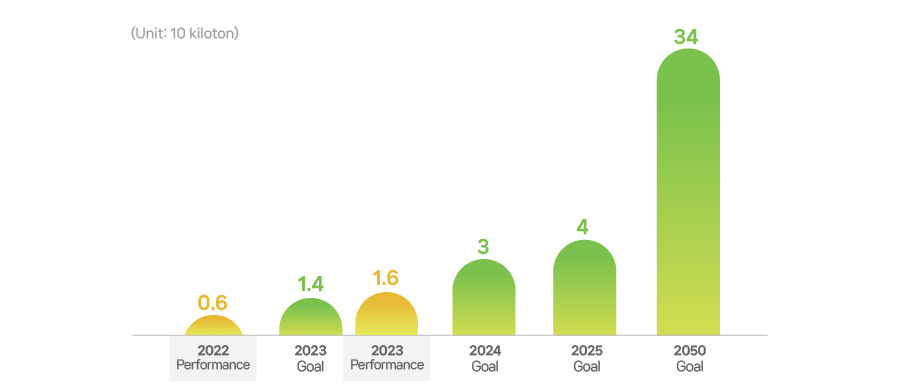
[Our progress and goals towards cumulative direct GHG emission reductions]
In 2023, we installed flash steam recovery equipment while recovering and reusing exhaust air through dust filtering and exhaust equipment to reduce our LNG consumption. Especially, dust filtering and exhaust processing equipment that was applied only at the Cheonan operation site was installed at other operations in Malaysia, and Xi’an, saving 2GWh of power consumption and 740,000Nm3 of LNG consumption per year. As battery manufacturing inherently requires dehumidifying conditions, high-priced dehumidifying air should be supplied to create a dry room environment. Meanwhile, a significant amount of such air is released outside through dust filtering and exhaust for the purpose of in-process particle management. To reduce the supply of expensive dehumidifying air, we installed more dust filtering and exhaust processing equipment to reuse the exhaust air that would be otherwise discarded.
Shift to Zero-emission Vehicles for All Corporate Vehicles
SAMSUNG SDI has a goal to shift to zero-emission vehicles for all our owned and leased corporate fleet vehicles by 2030. We achieved 15% of transition rate which was a 2023 goal. Our goal for 2024 is to achieve 20% of transition rate. SAMSUNG SDI currently uses electric vehicles, such as BMW’s i3 and i4 with the SAMSUNG SDI’s battery as our corporate vehicles.
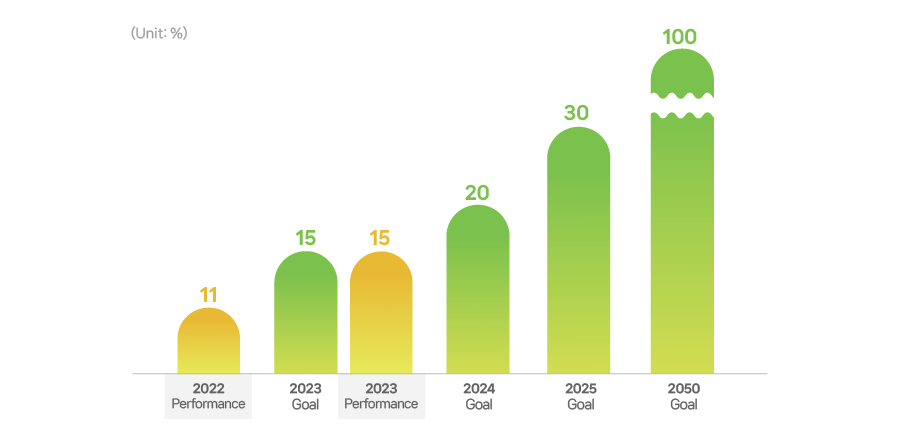
[Our progress and goals towards Zero-emission Vehicles]
Starting 2023, Korea’s first-ever high-floor electric buses equipped with SAMSUNG SDI batteries were released, and are being operated to support employee commutes, shuttle transport to affiliated companies, and visits to local operations.
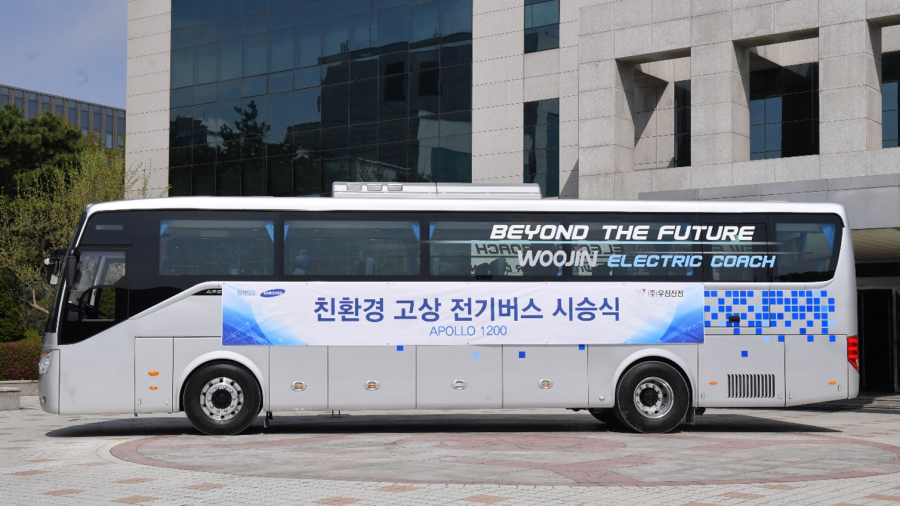
[Eco-friendly high-floor electronic bus]
Expand of Carbon Footprint-Certified Products
SAMSUNG SDI is the first company in Korea to achieve carbon footprint certification from ‘Carbon Trust’ in June 2023. The ‘Carbon Trust’ is an organization established by the UK government in 2001 and provide carbon footprint certifications through by measuring GHG emissions produced during the entire process of a production based on international standards. In 2023, SAMSUNG SDI achieved certification for 49.5Ah (module) and 4.8Ah (cell) batteries that are frequently used for electric cars. Additional certification was also obtained for two products in August 2024.
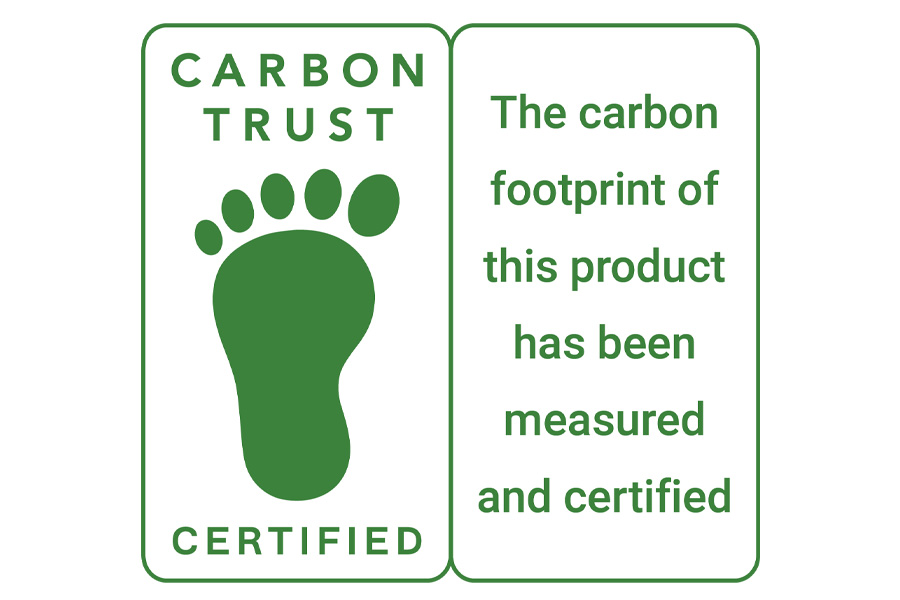
[SAMSUNG SDI achieved the ‘Carbon Trust’ certification]
SAMSUNG SDI performs LCA (Life Cycle Assessment) to quantitatively analyze the environmental impact generated along a product’s life cycle from raw material extraction and product use to disposal and recycling. This bases our efforts to explore ways to improve any adverse impact on the environment and respond to EU’s Batteries Regulation.
It was revealed that the pre-manufacturing phase of extracting, producing, and distributing raw/subsidiary materials accounted for over 50% of our total GHG emissions. In response, we will pursue emissions management and renewable energy transition in the raw/subsidiary material extraction phase involving partners as well as in the manufacturing phase.
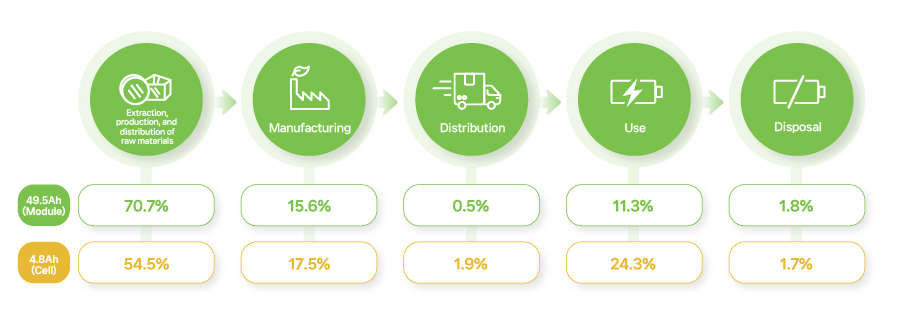
[Carbon footprint impact at each stage of the life cycle]
